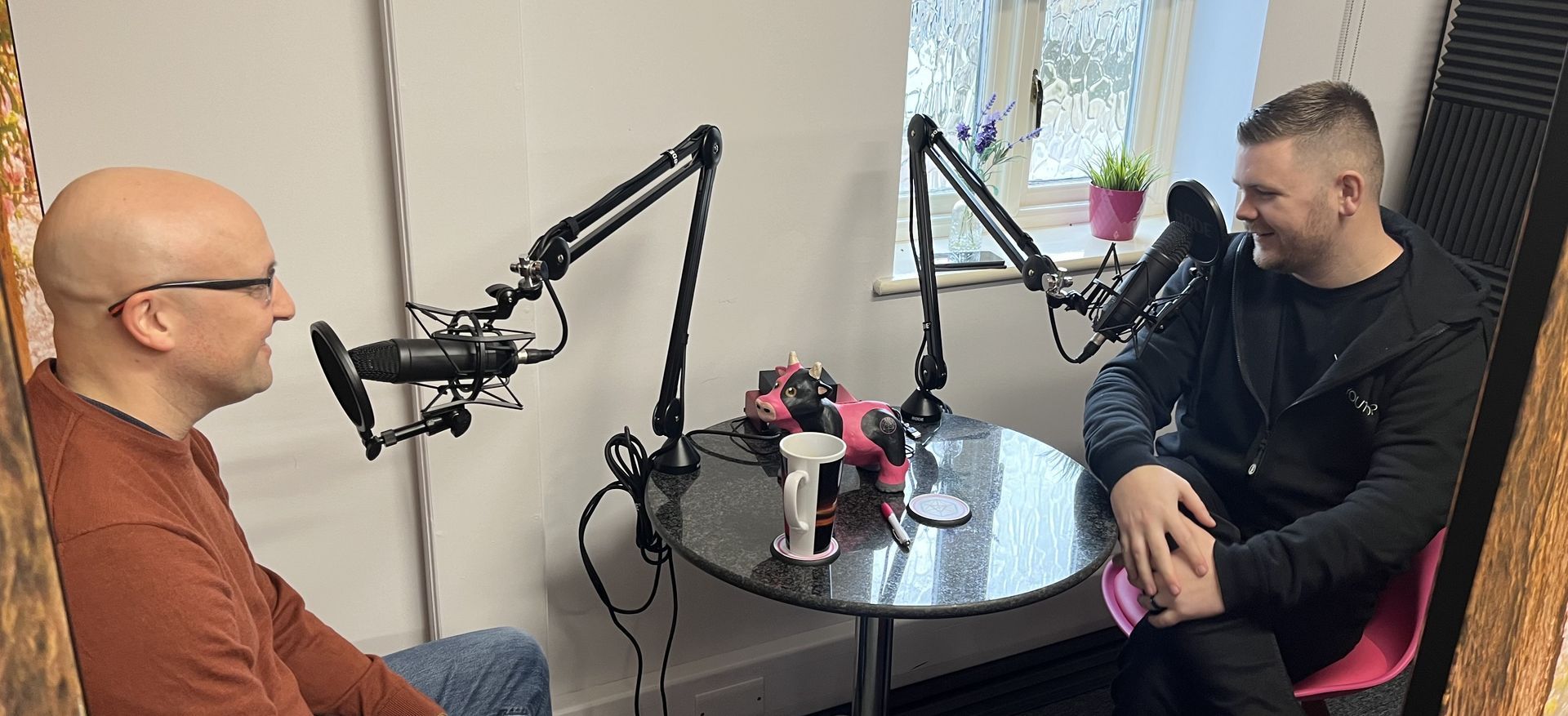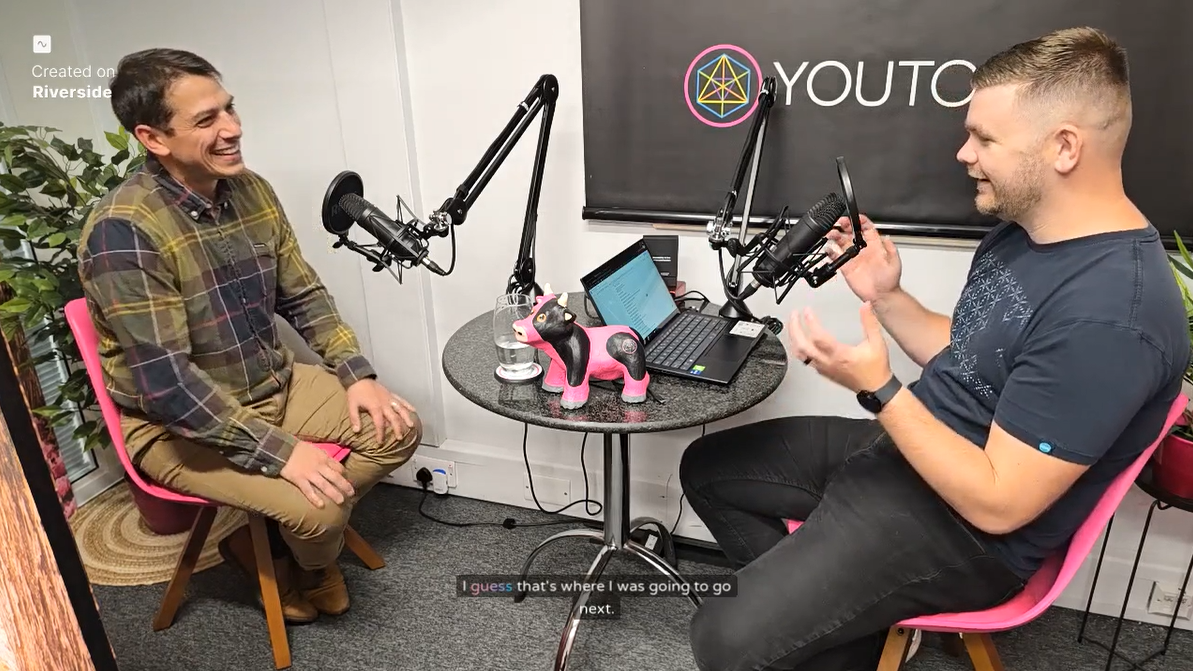5 Practical Ways to Balance Well-being and Financial Success
David.Adderson (David Adderson) • August 1, 2023
5 Practical Ways to Balance Well-being and Financial Success

The quest for financial success can sometimes feel like a never-ending treadmill, with increased stress and a compromised work-life balance as the unfortunate side-effects. However, by consciously choosing to place our well-being and time at the forefront of our lives, we can cultivate a sense of balance and fulfilment. This approach not only enhances our individual health and happiness but can also positively impact our overall productivity and professional performance.
Here are the key steps:
1. Decoupling from Digital Devices: The Need for Balance
It's easy to get caught up in the fast-paced digital world we live in. Technology is a constant presence, and it's not uncommon to find ourselves scrolling through social feeds, responding to emails, or jumping from one website to another, often at the cost of our own well-being. This unconscious habit of staying connected devices frequently ends up disrupting our work-life balance, causing stress and mental unrest. From personal observations to leading research, an increasing emphasis is being placed on the importance of decoupling from digital devices. Achieving a well-rounded digital equilibrium requires acknowledging the issue and seeking ways to create a healthy balance that suits your lifestyle without compromising on productivity or connectivity. Within the conversation, Brad Burton shared personal anecdotes that resonated with the struggles many of us face in dealing with this digital overload. Brad brought attention to the unrealistic digital expectations set by social media influencers and the discouragement that follows when individuals fail to meet these standards. He narrated his own experiences of feeling lost amidst the digital noise and the significance of stopping, thinking, and processing to regain control. The takeaway here revolves around prioritizing personal well-being over incessant digital engagement. Brad compared this to trying on a designer suit – it may look good on one person but not on another. The analogy highlights the essence of individually tailored digital usage over a one-size-fits-all approach. Understanding why creating a balance with digital devices is important begins with acknowledging the toll it takes on our well-being. In the modern era, time has become an invaluable asset, and how we choose to spend it can significantly impact our life quality and mental health. Overconsumption of digital content often leads to feeling overwhelmed, anxious, and fatigued. By actively setting boundaries and establishing a controlled relationship with technology, we make room for experiences that matter - engaging in the real world, nurturing relationships, maintaining health, and practicing mindfulness. After all, the aim is not to completely eliminate digital media but to create a harmonious balance that advocates a healthy lifestyle. It's about valuing time over money, cherishing experiences over screen-time, and realizing that true success and serenity lie within the balance we forge, not in the digital devices we own. It's a call to redefine what we view as 'valuable' and direct our lives towards holistic well-being.
2. The Juggling Act: Managing Time, Attention, and Well-being
In today's fast-paced and technologically driven world, juggling multiple tasks simultaneously has become the norm. However, stretching ourselves thin to keep up with the myriad of responsibilities can lead to stress and a decrease in productivity and well-being. Time, attention, and well-being are intricate aspects that need careful management to maintain harmony in our lives. Balancing these elements is akin to a tightrope walk over an abyss of potential burnout, and the fall can be precipitous. But with the right approach and resilience, it's possible to successfully manage our time, draw healthy boundaries around our attention, and prioritize our well-being without compromising on financial success. It requires an internal shift within us, a conscious choice to value time over money because, unlike money, time is a finite resource that we can't earn back. 2: Brad Burton, who skillfully juggles various roles as an entrepreneur, motivational speaker, and author, has firsthand experience managing time, attention, and well-being. His journey is a testament to the fact that balancing these facets is not only essential but also achievable. Brad discussed the importance of discarding the burdens that are counterproductive to one's well-being and interfering with productive usage of time. Brad echoed the need to prioritize one's well-being over any semblance of external success, highlighting how people are now constantly bombarded with a plethora of information and demands, significantly affecting their mental health. His insights also shed light on the detrimental effects of being addicted to digital devices and how it steals away from meaningful human interactions. 3: This key takeaway about managing time, attention, and well-being is significant since it resonates with almost everyone in our current societal context. In an age where success is often equated with continually being busy, it's easy to overlook the vital elements of our lives, such as healthy relationships, mental peace, and self-care. What's more, our mobile devices and the digital world at large, while being evolutionary tools, lure us into a vortex of endless scrolling and feed our fears of missing out. This fuels a race against time, perpetually leaving us feeling like we don't have enough of it. Consequently, it's essential to look beyond societal norms and prioritize our well-being by cherishing our time rather than chasing after more money. This not only propels a balanced life but also fosters contentment and happiness in the long run.
3. Breaking Free from Unrealistic Expectations in the Digital World
In today's rapidly evolving digital world, it's more important than ever to balance the time dedicated to technology and digital tasks with overall well-being. The guest speaker, Brad Burton, explored this crucial concept in the podcast episode. In an age where technology and digital dependability are on the rise, individuals often find themselves struggling to maintain a healthy work-life balance. This technological immersion often leads to a sense of disconnect from the real world and an overwhelming strain on mental health. Brad chose to express this through the idea of unrealistic digital expectations, where the constant bombardment of posts, emails, and digital interactions begins to cultivate a culture of perpetual digital demand that is challenging to keep up with. Brad Burton, in the episode, provides a rather intriguing perspective on the digital world's influence and how it sets unrealistic expectations on individuals. He notes that industry influencers often advocate for a relentless pace of content generation and digital activity that may not be feasible for most individuals. This unrealistic pace often sets individuals up for failure, creating discouragement and a sense of inadequacy when the pace cannot be maintained. One particularly resonating analogy that Brad uses likens the digital world's one-size-fits-all influence to a suit that fits perfectly on one person but appears ill-fitting on another, implying the necessity of individual-centric approaches to digital interaction rather than a universal model. The overemphasis on digital realities and the unreal expectations often created by this is an important concern that needs addressing. Falling into a trap of constant digital dependency and hustling to meet digital demands can lead to a significant decline in physical, mental, and even spiritual well-being. Prioritizing technology over well-being can create an imbalance that's challenging to rectify and can lead to burnout, to which Brad Burton can personally attest. Hence, breaking free from unrealistic expectations in a digital world and focusing on maintaining a healthy balance is essential. Brad emphasizes that while technology is a boon, it is important not to lose touch with personal well-being and value time more than the virtual reality presented through screens.
4. Rediscovering Deep Thinking: A Route to Finding Your Way Back
Exploring the concept of deep thinking takes central stage in the conversation between host David and guest Brad Burton. In the fast-paced digital world, the practice of deep thinking often gets overshadowed by the constant bombardment of online stimuli and distractions. Yet, according to Brad, deep thinking provides a route for individuals to navigate their way when they feel lost in their life's journey. This echoes the age-old wisdom that stepping back to reflect can bring clarity and allow one to reassess their priorities. Brad's advocacy for the power of deep thinking, in fact, points to a much-needed shift from the digitally-induced reactive mindset to a more thoughtful, proactive way of living. Dovetailing from this, Brad Burton shares his personal experience of losing his way, multiple times. However, each episode served as an opportunity for him to pause, think, and try to understand his situation before forging ahead. This practice, he believes, becomes particularly crucial in a world where immediacy often precedes introspection, and distractions supersede deep thought. Brad's experience presents a real-life illustration of how adopting a habit of deep thinking can assist in navigating life's turbulent waters, finding a way back when you are astray, and gaining a clearer perception of the path ahead. The significance of this conversation lies in the potential impact it could have on the listener's approach to life. In the incessant pursuit of financial success and external accomplishments, the importance of deep thinking, introspection, and balance often gets side-lined. However, as suggested by Brad's discourse, embracing these elements could help individuals realign with their authentic selves, leading to a more balanced existence. Indeed, deep thinking could be seen as a means to harmonize one's time management with their well-being in the pursuit of financial success. It demonstrates how people, encumbered by the digital world's demands, can regain control, reconnect with their core values, and direct their lives more efficiently.
5. The Decline of Meaningful Conversations: A Call for Sensible Dialogues
In today's digital age, achieving a sense of balance often proves challenging. Many are caught in a relentless rush, continuously juggling myriad responsibilities while still trying to keep up with the influx of information and interactions ubiquitous in the digital sphere. This hyper-connected lifestyle can turn into an exhausting endeavor, resulting in a decline in mental well-being. Unsettling as it may sound, the decline of meaningful conversations in our society is an undeniable challenge that needs addressing. In a time where communication channels are seemingly limitless, real, in-depth dialogue appears to be in dire shortage. It might seem ironic, but for many, genuine interaction has become a rare commodity in the era of social networks and instant messaging. 2: Brad Burton, during his conversation with David, shed light on the complexity and urgency of this emerging societal issue. He draws attention to the potential danger of this kind of pervasive disconnection by making a potent parallel between dependency on digital devices and his earlier struggles with substance abuse. He stresses that our societal fabric is getting torn apart by this trend of constant digital immersion. Remarkably, he points out that this digital addiction has some truly severe side-effects that often go unnoticed, such as escalating anxiety levels and a growing tendency among youth to avoid leaving their homes in favor of remote work. Brad believes the decline of meaningful dialogues isn't just limiting individual growth, but it is resulting in polarization and the wide-scale weaponization of online platforms, leading to an environment which is all too often devoid of constructive conversation. 3: The decline of meaningful conversations has profound implications on numerous levels. Notably, it impacts our ability to problem-solve, innovate and foster stronger relationships both personally and professionally. Thoughtful, respectful and in-depth dialogue is the cornerstone of productive societal functioning. Balanced and rational discourse can aid in bridging divides, promoting tolerance, and fostering empathy. Moreover, it is through genuine, heartfelt conversations that individuals often find commonalities, which help in nurturing stronger bonds and networks. In the rapidly digitizing world, renewing the emphasis on engaging in conscious and meaningful discourse is not just a notion; it's a necessity to preserve our mental well-being and ensure societal harmony.
Achieving financial success while maintaining a balanced and fulfilling life is a challenging yet attainable feat. The insights shared in this discussion provide a roadmap to navigate this journey effectively. The need to decouple from digital devices, manage our time and attention, break free from unrealistic expectations, engage in deep thinking, and foster meaningful conversations are all crucial elements in this pursuit. These key takeaways serve as a beacon, guiding us towards a healthier, balanced, and more fulfilling lifestyle. Looking ahead, remember that your well-being is your
What other steps are you taking? Comment below and let me know.
Connect with me here:
Here are the key steps:
- Decoupling from Digital Devices: The Need for Balance
- The Juggling Act: Managing Time, Attention, and Well-being
- Breaking Free from Unrealistic Expectations in the Digital World
- Rediscovering Deep Thinking: A Route to Finding Your Way Back
- The Decline of Meaningful Conversations: A Call for Sensible Dialogues
1. Decoupling from Digital Devices: The Need for Balance
It's easy to get caught up in the fast-paced digital world we live in. Technology is a constant presence, and it's not uncommon to find ourselves scrolling through social feeds, responding to emails, or jumping from one website to another, often at the cost of our own well-being. This unconscious habit of staying connected devices frequently ends up disrupting our work-life balance, causing stress and mental unrest. From personal observations to leading research, an increasing emphasis is being placed on the importance of decoupling from digital devices. Achieving a well-rounded digital equilibrium requires acknowledging the issue and seeking ways to create a healthy balance that suits your lifestyle without compromising on productivity or connectivity. Within the conversation, Brad Burton shared personal anecdotes that resonated with the struggles many of us face in dealing with this digital overload. Brad brought attention to the unrealistic digital expectations set by social media influencers and the discouragement that follows when individuals fail to meet these standards. He narrated his own experiences of feeling lost amidst the digital noise and the significance of stopping, thinking, and processing to regain control. The takeaway here revolves around prioritizing personal well-being over incessant digital engagement. Brad compared this to trying on a designer suit – it may look good on one person but not on another. The analogy highlights the essence of individually tailored digital usage over a one-size-fits-all approach. Understanding why creating a balance with digital devices is important begins with acknowledging the toll it takes on our well-being. In the modern era, time has become an invaluable asset, and how we choose to spend it can significantly impact our life quality and mental health. Overconsumption of digital content often leads to feeling overwhelmed, anxious, and fatigued. By actively setting boundaries and establishing a controlled relationship with technology, we make room for experiences that matter - engaging in the real world, nurturing relationships, maintaining health, and practicing mindfulness. After all, the aim is not to completely eliminate digital media but to create a harmonious balance that advocates a healthy lifestyle. It's about valuing time over money, cherishing experiences over screen-time, and realizing that true success and serenity lie within the balance we forge, not in the digital devices we own. It's a call to redefine what we view as 'valuable' and direct our lives towards holistic well-being.
2. The Juggling Act: Managing Time, Attention, and Well-being
In today's fast-paced and technologically driven world, juggling multiple tasks simultaneously has become the norm. However, stretching ourselves thin to keep up with the myriad of responsibilities can lead to stress and a decrease in productivity and well-being. Time, attention, and well-being are intricate aspects that need careful management to maintain harmony in our lives. Balancing these elements is akin to a tightrope walk over an abyss of potential burnout, and the fall can be precipitous. But with the right approach and resilience, it's possible to successfully manage our time, draw healthy boundaries around our attention, and prioritize our well-being without compromising on financial success. It requires an internal shift within us, a conscious choice to value time over money because, unlike money, time is a finite resource that we can't earn back. 2: Brad Burton, who skillfully juggles various roles as an entrepreneur, motivational speaker, and author, has firsthand experience managing time, attention, and well-being. His journey is a testament to the fact that balancing these facets is not only essential but also achievable. Brad discussed the importance of discarding the burdens that are counterproductive to one's well-being and interfering with productive usage of time. Brad echoed the need to prioritize one's well-being over any semblance of external success, highlighting how people are now constantly bombarded with a plethora of information and demands, significantly affecting their mental health. His insights also shed light on the detrimental effects of being addicted to digital devices and how it steals away from meaningful human interactions. 3: This key takeaway about managing time, attention, and well-being is significant since it resonates with almost everyone in our current societal context. In an age where success is often equated with continually being busy, it's easy to overlook the vital elements of our lives, such as healthy relationships, mental peace, and self-care. What's more, our mobile devices and the digital world at large, while being evolutionary tools, lure us into a vortex of endless scrolling and feed our fears of missing out. This fuels a race against time, perpetually leaving us feeling like we don't have enough of it. Consequently, it's essential to look beyond societal norms and prioritize our well-being by cherishing our time rather than chasing after more money. This not only propels a balanced life but also fosters contentment and happiness in the long run.
3. Breaking Free from Unrealistic Expectations in the Digital World
In today's rapidly evolving digital world, it's more important than ever to balance the time dedicated to technology and digital tasks with overall well-being. The guest speaker, Brad Burton, explored this crucial concept in the podcast episode. In an age where technology and digital dependability are on the rise, individuals often find themselves struggling to maintain a healthy work-life balance. This technological immersion often leads to a sense of disconnect from the real world and an overwhelming strain on mental health. Brad chose to express this through the idea of unrealistic digital expectations, where the constant bombardment of posts, emails, and digital interactions begins to cultivate a culture of perpetual digital demand that is challenging to keep up with. Brad Burton, in the episode, provides a rather intriguing perspective on the digital world's influence and how it sets unrealistic expectations on individuals. He notes that industry influencers often advocate for a relentless pace of content generation and digital activity that may not be feasible for most individuals. This unrealistic pace often sets individuals up for failure, creating discouragement and a sense of inadequacy when the pace cannot be maintained. One particularly resonating analogy that Brad uses likens the digital world's one-size-fits-all influence to a suit that fits perfectly on one person but appears ill-fitting on another, implying the necessity of individual-centric approaches to digital interaction rather than a universal model. The overemphasis on digital realities and the unreal expectations often created by this is an important concern that needs addressing. Falling into a trap of constant digital dependency and hustling to meet digital demands can lead to a significant decline in physical, mental, and even spiritual well-being. Prioritizing technology over well-being can create an imbalance that's challenging to rectify and can lead to burnout, to which Brad Burton can personally attest. Hence, breaking free from unrealistic expectations in a digital world and focusing on maintaining a healthy balance is essential. Brad emphasizes that while technology is a boon, it is important not to lose touch with personal well-being and value time more than the virtual reality presented through screens.
4. Rediscovering Deep Thinking: A Route to Finding Your Way Back
Exploring the concept of deep thinking takes central stage in the conversation between host David and guest Brad Burton. In the fast-paced digital world, the practice of deep thinking often gets overshadowed by the constant bombardment of online stimuli and distractions. Yet, according to Brad, deep thinking provides a route for individuals to navigate their way when they feel lost in their life's journey. This echoes the age-old wisdom that stepping back to reflect can bring clarity and allow one to reassess their priorities. Brad's advocacy for the power of deep thinking, in fact, points to a much-needed shift from the digitally-induced reactive mindset to a more thoughtful, proactive way of living. Dovetailing from this, Brad Burton shares his personal experience of losing his way, multiple times. However, each episode served as an opportunity for him to pause, think, and try to understand his situation before forging ahead. This practice, he believes, becomes particularly crucial in a world where immediacy often precedes introspection, and distractions supersede deep thought. Brad's experience presents a real-life illustration of how adopting a habit of deep thinking can assist in navigating life's turbulent waters, finding a way back when you are astray, and gaining a clearer perception of the path ahead. The significance of this conversation lies in the potential impact it could have on the listener's approach to life. In the incessant pursuit of financial success and external accomplishments, the importance of deep thinking, introspection, and balance often gets side-lined. However, as suggested by Brad's discourse, embracing these elements could help individuals realign with their authentic selves, leading to a more balanced existence. Indeed, deep thinking could be seen as a means to harmonize one's time management with their well-being in the pursuit of financial success. It demonstrates how people, encumbered by the digital world's demands, can regain control, reconnect with their core values, and direct their lives more efficiently.
5. The Decline of Meaningful Conversations: A Call for Sensible Dialogues
In today's digital age, achieving a sense of balance often proves challenging. Many are caught in a relentless rush, continuously juggling myriad responsibilities while still trying to keep up with the influx of information and interactions ubiquitous in the digital sphere. This hyper-connected lifestyle can turn into an exhausting endeavor, resulting in a decline in mental well-being. Unsettling as it may sound, the decline of meaningful conversations in our society is an undeniable challenge that needs addressing. In a time where communication channels are seemingly limitless, real, in-depth dialogue appears to be in dire shortage. It might seem ironic, but for many, genuine interaction has become a rare commodity in the era of social networks and instant messaging. 2: Brad Burton, during his conversation with David, shed light on the complexity and urgency of this emerging societal issue. He draws attention to the potential danger of this kind of pervasive disconnection by making a potent parallel between dependency on digital devices and his earlier struggles with substance abuse. He stresses that our societal fabric is getting torn apart by this trend of constant digital immersion. Remarkably, he points out that this digital addiction has some truly severe side-effects that often go unnoticed, such as escalating anxiety levels and a growing tendency among youth to avoid leaving their homes in favor of remote work. Brad believes the decline of meaningful dialogues isn't just limiting individual growth, but it is resulting in polarization and the wide-scale weaponization of online platforms, leading to an environment which is all too often devoid of constructive conversation. 3: The decline of meaningful conversations has profound implications on numerous levels. Notably, it impacts our ability to problem-solve, innovate and foster stronger relationships both personally and professionally. Thoughtful, respectful and in-depth dialogue is the cornerstone of productive societal functioning. Balanced and rational discourse can aid in bridging divides, promoting tolerance, and fostering empathy. Moreover, it is through genuine, heartfelt conversations that individuals often find commonalities, which help in nurturing stronger bonds and networks. In the rapidly digitizing world, renewing the emphasis on engaging in conscious and meaningful discourse is not just a notion; it's a necessity to preserve our mental well-being and ensure societal harmony.
Achieving financial success while maintaining a balanced and fulfilling life is a challenging yet attainable feat. The insights shared in this discussion provide a roadmap to navigate this journey effectively. The need to decouple from digital devices, manage our time and attention, break free from unrealistic expectations, engage in deep thinking, and foster meaningful conversations are all crucial elements in this pursuit. These key takeaways serve as a beacon, guiding us towards a healthier, balanced, and more fulfilling lifestyle. Looking ahead, remember that your well-being is your
What other steps are you taking? Comment below and let me know.
Connect with me here:
- https://www.facebook.com/https://www.facebook.com/YoutopiaSolutions
- https://www.linkedin.com/https://www.linkedin.com/company/youtopia-solutions-ltd/
- https://www.youtube.com/https://www.youtube.com/channel/UCQh2hMYBVGc7dEnAH9TkXOw
- https://www.twitter.com/https://www.twitter.com/HelloYoutopia
- https://www.youtopia.co.uk/

Inclusion is desirable, yet it is complex. In this two-part blog, we begin to unravel the challenges of increasing needs in education and diminishing resources. In this article, Dr Anita Devi explores some of the many challenges Educators in England currently face. Her intent is to extend perceptual thinking from problem to solution. In Part 2, Katherine Robertson will unpick some of the financial levers for consideration. I have worked in the education sector for a fair few decades now. Am I showing my age? Possibly, but also my experience and out of that experience is born wisdom. Wisdom is applied knowledge with the benefit of lived experience and hindsight. To broaden our thinking, I have decided to focus on three areas: Rising needs in the classroom – ensuring each child receives an educational experience that is progressive, whilst meeting their needs Less is more – applying a structured and systematic approach to providing support for special educational needs and disability (SEND) Commissioning with purpose – intentionally involving others, when needed. Since the increase in needs always outmatches the rise in resource funding, sadly we will always be in a deficit. This is not about being despondent, but hopeful through responsive and creative solutions. In many life situations, we face elements of the unknown and so we put in place checks and balances to ensure we maintain stability. If our own personal finances were continuously in the red, we would be faced with three options: Reduce spending Increase income Look for alternatives In the education world whilst options 1 and 2 may be possible to some degree, it is restricted and ultimately option 3 has been our default; especially if we are to adhere to the core principles of The Salamanca Statement (1994) and more closely to home, The Children and Families’ Act 2014. Rising need in the classroom Those who lead on inclusion and /or SEND need to simplify systems to ensure those learners who require additional and adaptive provision receive it. I have expanded more on this in a July 2023 booklet, which you can download here . If as a leader, you understand the fundamentals of an inclusive provision framework, you can reduce the paper trail to make it purposeful, without compromising on keeping a diligent paper trail of evidence. This will also ensure you know whether what is in place is having an impact or not. SEND: It is time to lead differently . Less is more There are a number of core decisions to be made when additional provision is put in place. For example, in or out of the classroom? How long is the defined additional support required and most importantly what is the expected outcome from the additional support? For far too long, we have assumed the ‘forever’ model when it comes to interventions or additional support. We have often omitted to discern short-term from long-term, as well as factor in the negative impact of too many interventions simultaneously. Short-term interventions, if assessed and targeted well can (in many instances) provide the learner with new skills and/or increased independence. This is a desirable outcome, as none of us is truly seeking to create a dependency model. Equally, administering too many interventions simultaneously takes away from the exploratory nature of interventions i.e. what’s working and what needs to change. We have indeed moved away from the ‘medical model’, however, some of the basic principles still need to be considered. In response to a medical condition, a doctor would not prescribe multiple medications or remedies simultaneously. Due care and consideration would be given to the negative interactive impact of one solution upon another. We need to apply a similar approach to inclusion and SEND. This is not denying that a child may have multiple needs, but sometimes it is about focusing on one thing at a time. Commissioning with Purpose This has been a bugbear of mine since 2018 , if not before! As a previous SEND Advisory Teacher, I was always intentional about ‘adding value’ to what is already in place in any setting. As a previous Senior Leader / SENCO, I was always intentional about securing services that provided ‘value for money’. I’ve worked with The Audit Commission on this and The National Audit Office, not to mention Business Managers and local authorities. I would also encourage readers to explore their ‘decommissioning process’. As a long-standing Education Change Consultant, my team & I always write our exit plans before we go into support. This is regardless of whether we are working in the UK or overseas. I am continuously amazed how many schools/colleges rely on the same service for years, even if there is no impact evidence of change through the input they are buying in. Over the years, training head teachers at national conferences, I have always advocated ‘procurement with precision’. Even at local authority level, I think provision would be better if Porter’s Forces were applied during the annual review of an EHCP in regard to placement choices, especially non-maintained Independent schools (NMIs). Supplier power through exuberant price hikes, in a time when there is a shortage of places, is both immoral and financially unsustainable. This is just the start of the conversation, but with a few systemic tweaks – schools and colleges can begin to look differently at provision. Still meeting the needs of children and young people but reducing the strain on financial resources and human manpower. Do get in touch if you would like to find out more. Author: Dr Anita Devi dr. h.c. Dr Anita Devi , leading SEND specialist, and Katherine Robertson , strategic finance expert, have joined forces to offer a new advisory service for schools and colleges . This service is designed to provide strategic financial governance of SEND provision, focusing on efficiency, effectiveness, and value for money . We help you explore financially sustainable solutions that support early intervention, improve outcomes, and make the most of every pound spent, without compromising on quality. If you're ready to rethink how SEND resources are used in your setting, contact us for a preliminary conversation at SEND_Finance@youtopia.co.uk 📢 And keep an eye out for our upcoming blog








